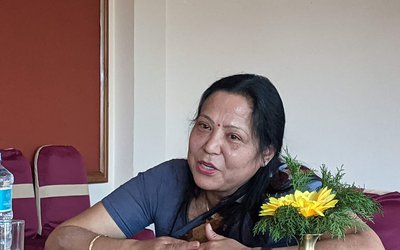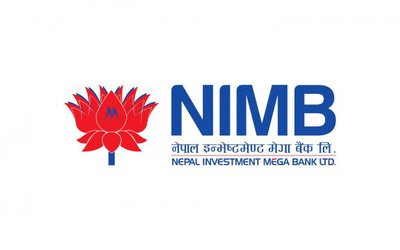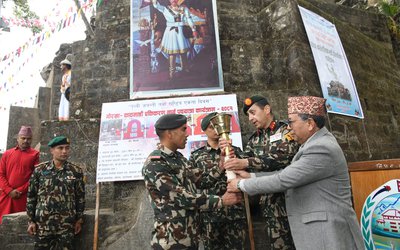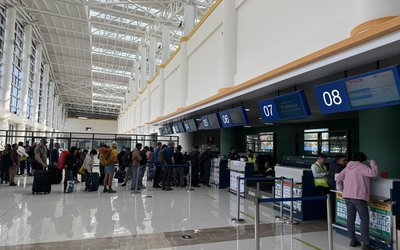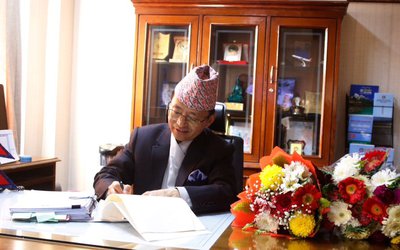
How do you see your visit?
I have visited various parts of earthquake affected regions in the last two days. The situation of the people is pathetic as they are yet to recover from the trauma of earthquake. Even after six weeks, people are still afraid. People are very much concerned about the coming monsoon season with the worries of likely devastation. People will suffer a lot even after the landslides and floods.
What would be the next step?
We are addressing emergency situation and making efforts to make the situation safer. After monsoon, they can search safer place to live. I also talked with minister of foreign Affairs Mahendra Bahadur Pandey as the relations between the Netherlands and Nepal is going back to a long time. We discussed the issue of coordination which is very important. Government needs to be an active player in the coordination between their own efforts and local and international INGOs.
What other issues did you discuss?
We also discussed the issues related to planning and implementation of building back safe Nepal. There is going to be International Conference on Nepal’s Reconstruction on June 25. Of course, the Netherlands will participate in it.
How do you see the contribution of the Netherlands?
Soon after the events, the Dutch government donated 10 million Euros to assist the people of Nepal through Dutch INGOs, which have been working in Nepal for quite a long time and they have also their networks. We also supported World Food Program and Red Cross. I have been very encouraged by the work they have been doing. The Netherlands is also one of the larger contributors to The World Food Program in general and UN Emergency.
How do you see Nepalese people?
I am very happy to see the resilience of Nepalese people. During my visit, I have not only seen what we have been doing but what Nepalese people have been doing for themselves. I have seen many Nepalese reaching out to the neighbors.
Have you also talked with other agencies?
During my visit, I also discussed the issues with NGOs and International NGOs, the civil society organizations. I did a lot of listening. I learned from them how they assessed the situation. There is a good availability of water, medical and food and other non-food items. What I was told was that the situation in remote parts of Nepal is not as it is in Kathmandu. The relief materials are yet to reach the mountains. No one is able to reach the villages easily. They told us that there are mixed results in reaching out to the people.
Does Nepal also receive help from the people of the Netherlands?
Along with the government of the Netherlands, the people of the Netherlands also donated for the earthquake victims through the Dutch NGOs. The Dutch people contributed 20 million Euros to the Dutch NGOs working in Nepal. In the later phase, we will also work with the World Bank and UN organizations, where we are larger contributors.
How do you see the international conference?
The conference on June 25 is very important for different reasons. One is that it is an opportunity for Nepal government for a dialogue with donor countries, agencies and also EU. As I have told you that, there may still need emergency support. How do they reconstruct the planning? Giving them comprehensive assessment would be very important.
How important is the conference for financial commitments?
In terms of financial means, I would suggest that in this period of time it will be very important to get the commitments from donors and agencies. The government of Nepal and people of Nepal should come with the future plan in improving the infrastructures and building back safe Nepal. Some funding might have been allocated for that.
Can we hold another conference?
The conference like that is not going to be one time shop. It would be good if there would be commitment for follow up. I don’t see this conference as end of process and it should be beginning of the process. Building back safer Nepal will take a long period of time. There will be frustrating periods to the people of Nepal and to the donors because we want to see the situation normal as much as we can. However, one can be realistic.
What do you see are important components?
Disasters like these happen. One of the issues will always be on the table: the issue is landownership. Many people who have to live in the villages now need to go back. They don’t have any landownership but working there for generations. Looking at the way Nepalese are coming jointly is good. I inspired the dialogue how can the resource of this country can use in the way that could be inclusive. Much governments worldwide face similar situations. It is the government of Nepal and people of Nepal who need to be involved in the dialogue. It is not easy. People need to have access to land for all. It is a good time to start to increase the access.
- NIMB Achieves Accreditation With Green Climate Fund (GCF)
- Jan 10, 2025
- NATIONAL UNITY DAY: Unity Trail
- Jan 10, 2025
- TOURISTS ARRIVAL: Surpass A Million
- Jan 10, 2025
- NATIONAL POLITICS: Looming Instability
- Jan 09, 2025
- FM DR.RANA INDIA VISIT: Strengthening Relations
- Jan 02, 2025





